News
Know Your Enemy and Know Yourself-What Hayabusa2 Taught Us Updated in February 2021
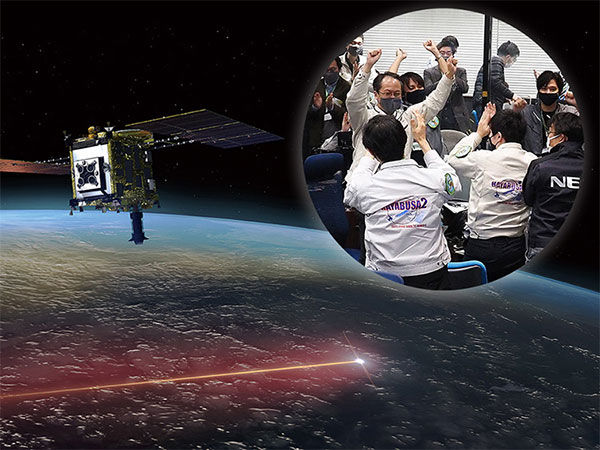
On December 6, 2020, the asteroid explorer Hayabusa2 delivered a capsule filled with samples back to Earth after completing its six-year journey. All the bold challenges, like the first collection of the asteroid’s underground samples were successful. In contrast to its predecessor Hayabusa which returned battered and bruised 10 years ago, this smooth 5.2-billion-kilometer journey learned lessons from past troubles to bring Japan's high standards of exploration technology to the world. Behind the scenes was the hard work of the operations team, who calmly assessed the situation and continued to take on challenges with heightened capabilities.
No More Hayabusa Movies
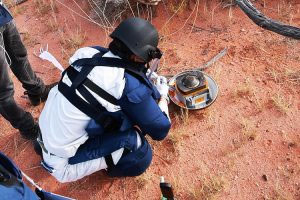
"I would give myself 10,000 points!" boasted Tsuda Yuichi cheerfully. At the press conference on December 6, 2020 when the sample capsule was collected, Tsuda, project manager in charge of Hayabusa2, replied radiantly. A newspaper reporter had asked him what score he would give himself out of 100 for the past six years." Tsuda gave his answer immediately.
Hayabusa2 is the successor to the first-generation Hayabusa, which in 2010 for the first time in history recovered asteroid sample materials and brought them back to Earth. Significant improvements were incorporated into its successor, Hayabusa2. It landed on an asteroid named "Ryugu" and collected surface and underground samples to bring home.
"Like a mantra, I kept telling my team that Hayabusa2 is not going to be a movie. Luckily, the mission did not entail any unexpected drama like overcoming a catastrophe. Moviemakers may not find any attractive stories. So far, there haven’t been any offers besides making a CG-film on Hayabusa2…” Tsuda said with a relieved expression.
The first-generation Hayabusa faced one trouble after another. Failure of the positioning control device, fuel leak, communication blackout, breakdown of all four ion-engines that were supposed to accelerate the aircraft, and so on… Although samples were recovered from the asteroid "Itokawa", the experimental bullets which should have been shot into the asteroid’s surface did not even fire, and the amount of sample was minimal. The once desperate return flight was accomplished solely due to the operation team’s tenacity. Finally, the striking view of the spacecraft burning up upon reentry into the atmosphere caused a nationwide sensation that led to production and release of three movies. The journey of the first Hayabusa is also mentioned in junior high and high school textbooks.
Struggle during a Year and Five Months: Dropping Robots and Collecting Samples
A quick review of the Hayabusa2’s journey is as follows:
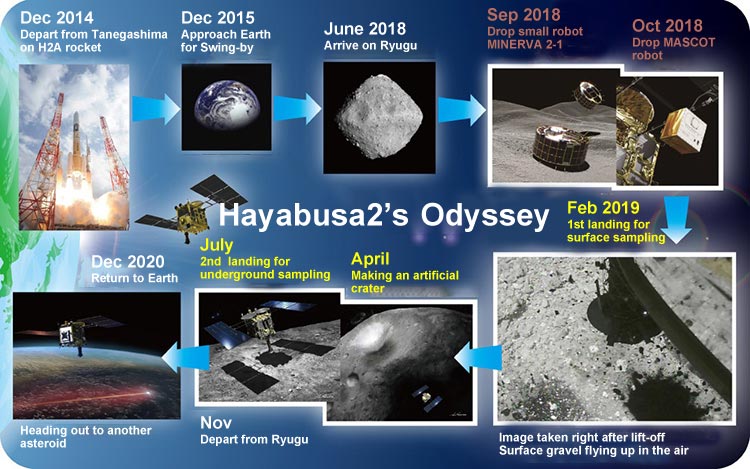
Hayabusa2 departed from JAXA’s Tanegashima Space Center (Kagoshima Prefecture) in December 2014 on an H2A rocket. It arrived at the asteroid Ryugu in June 2018 after a "swing-by" that accelerated and changed its orbit using the Earth’s gravitational pull. Through continued observation of the terrain and gravity, Hayabusa 2 released JAXA's small robot "MINERVA 2-1" in addition to the asteroid lander “MASCOT” developed by Germany and France. The robots were dropped onto the surface of Ryugu one after the other. Both robots jumped and moved, sending surface photographs and observational data back to Earth.
Substance sampling─the climax of the exploration─was carried out twice. Hayabusa2 landed near the equator in February 2019 and fired bullets from the spacecraft to scrape and collect substances off the asteroid’s surface. Then, in April 2019, an artificial crater was created by exploding a device which separated from the spacecraft. Underground material samples exposed by this work were collected in July.
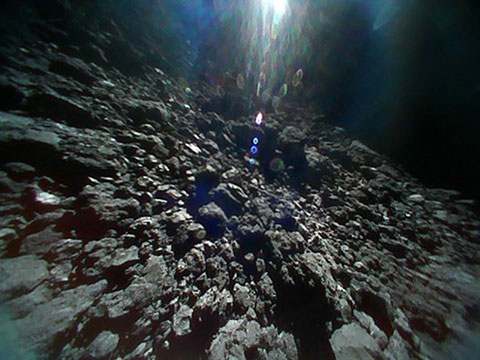
In November 2019 Hayabusa2 bid farewell to Ryugu. The return trip back home was also smooth. And on December 6, 2020, the capsule containing samples was dropped into the Australian desert. The team expects to see more samples exceeding 100 milligrams this time. The outcome will be determined after a thorough examination.
Another small robot "MINERVA 2-2" developed by an alliance of Japanese universities, could not carry out planned experiments due to a defect, but it orbited over Ryugu and was useful for precisely measuring gravity.
Grappling with the Tough Asteroid Ryugu
Looking back, it seems that Hayabusa2 proceeded seamlessly with the exploration, but in reality, the team suffered a great deal from Ryugu.
Upon Hayabusa2’s arrival at the asteroid, all the team members who saw the images sent by the spacecraft gasped in despair inside the JAXA control room in Sagamihara City. The entire surface of the asteroid was covered with rocks. There were no flat patches of land for Hayabusa2 to land safely. "At first, I thought if I looked closely, I’d find somewhere,' Tsuda recalls. “But after searching for a week or two, I was shocked admit that the surface was too rocky. If Hayabusa2 collided with a rock upon forced landing, the spacecraft would be damaged, jeopardizing its journey back home.”
Researchers believed that asteroids always had some level ground, and that Ryugu would also have a space of about 100 square meters. Based on these findings, the landing accuracy of Hayabusa2 was designed to be about 50 meters. Faced with difficulties, Tsuda was at a loss. At the time, he told the press that "Ryugu is flashing its teeth at us."
Due to the dire situation, the first sample collection planned in October 2018 was postponed. While the team was looking for a sufficiently flat area, they decided to focus on the limits of their ability rather than the design-oriented performance of Hayabusa2. In addition to analyzing the performance in detail through descent training, the team decided to focus on the slight differences in the gravity of Ryugu from region to region, and to tilt the aircraft in order to avoid collision with rocks. The team came up with a number of detailed ideas.
Perhaps the biggest change that led to later success was the use "target markers." They are markers that can be dropped on the surface of the asteroid to help grasp its position. Originally, the first landing plan was to descend by chasing after the falling markers. This was revised so that the markers were dropped on the asteroid’s surface in advance so that its position could be confirmed accurately by capturing dropped markers with a camera during descent. It was an advanced landing method intended for the second and subsequent landing, but the team went ahead to target the exact landing point.
Through these strategies, they were finally able to confirm that the landing accuracy would be just 2.7 meters, greatly exceeding the original design. What’s more, the team found smooth landing sites with a radius of 3 meters from multiple candidate sites, now well within Hayabusa2’s landing precision capabilities.
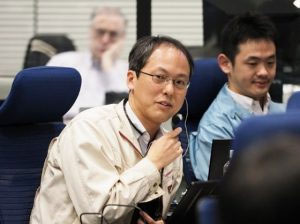
In the end, Hayabusa2 completed its first landing. All the machinery of the spacecraft were in full operation—it successfully photographed flying gravel on Ryugu and managed to send images back to its control room 340 million kilometers away. It was the moment when human beings established a new exploration method on a celestial body with microgravity. Hayabusa2 finally overcame its predecessor which could not fire bullets for sample collection.
"Today, the hands of humankind have reached a new little star." Tsuda's radiant voice echoed at the press conference venue. According to a detailed follow-up analysis, the error range of the actual landing point was only one meter.
Challenging without Gambling
The next challenge was underground sample collection. Substances on the asteroid’s surface are weathered under the influence of sunlight and cosmic rays (atomic particles flying through outer space), while substances underground are kept in their ancient state and are useful for studying the history and weathering phenomena of the solar system. The plan was to first separate the "collision device" from the spacecraft and to explode it to create an artificial crater. Then, the exposed and scattered underground substances would be collected after settling.
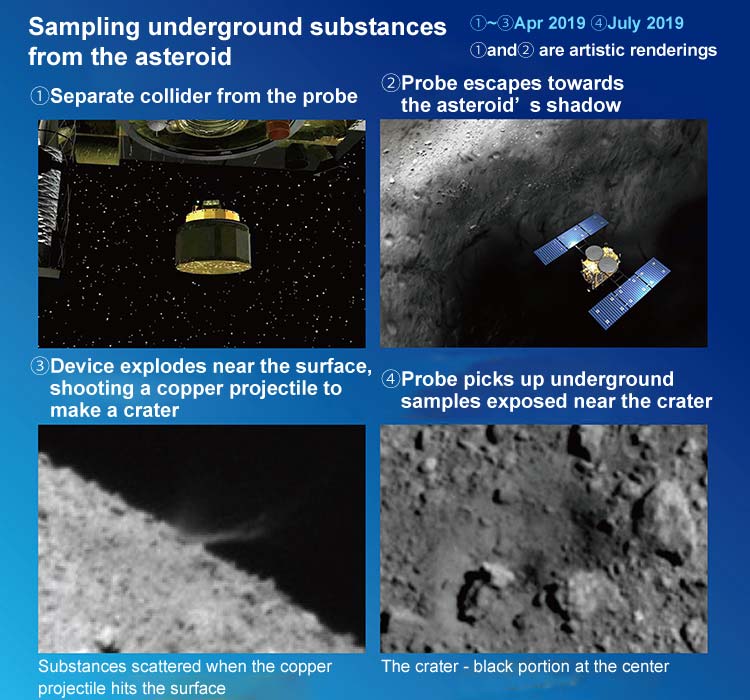
The process to make a crater on the asteroid pushed Hayabusa2 and its equipment to perform advanced tasks. After separating the collision device, the spacecraft would seek shelter in the shadow of Ryugu so that it would not be damaged by the explosion. The process would then unfold like so: First, a collision device explodes in the sky, and then a copper projectile would be fired, hitting the asteroid’s surface to create a crater. There was only one collision device, making this mission a one-shot chance. The collision device was controlled by a timer, meaning that once separated from the spacecraft, the explosion could not be stopped. In the unlikely event that the spacecraft could not evacuate to a safe spot swiftly, the scattered debris could hit and damage the spacecraft.
In the end, the task went perfectly, and a crater with a diameter of about 10 meters was created at the desired location. The camera separated from the spacecraft also succeeded in capturing the moment when the sample substances were scattered. The intricate techniques involved amazed the world. In the subsequent underground sample collection, the spacecraft landed with an error range of only 60 cm, which was better even than the first round.
Looking back on the 17 months dedicated to Ryugu, Tsuda said, "We fought as hard as we could in our attempts against the asteroid. However, we never gambled. We always ensured safety, so as not to destroy the spacecraft."
Exploring the History of the Solar System, the Earth, and Life Itself
What is the scientific purpose of Hayabusa2 in the first place? About one million asteroids are known to exist in our solar system, most of them in the "asteroid belt" between Mars and Jupiter. However, since some of asteroids like Itokawa and Ryugu approach Earth's orbit (the orbit around the Sun), it is easy for the spacecraft to make a round trip to and from the Earth, and the first Hayabusa and its successor Hayabusa2 have accomplished these trips.
Planets like Earth repeatedly collide with celestial bodies during their formation process, and once the temperature rises, their original constitution alters. Asteroids, however, have not undergone large-scale changes, and are thought to have maintained their original states from when they were formed at the beginning of the solar system. If their substances can be collected and analyzed directly, it will be a powerful insight into the history of our solar system.
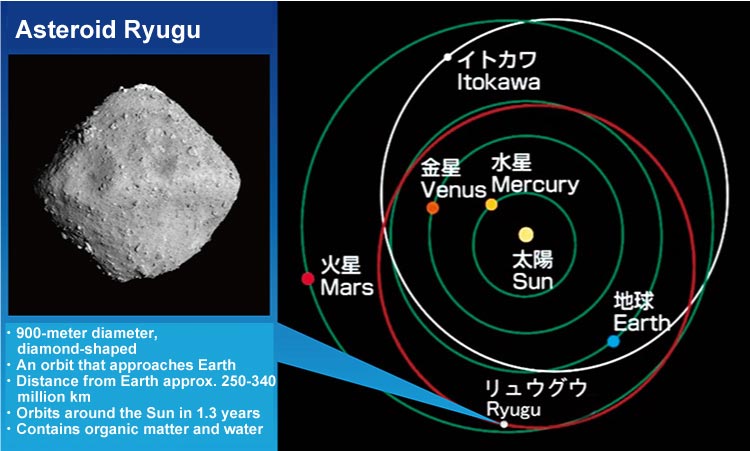
Among asteroids, Ryugu is classified into a type that contains organic matter and water that are indispensable for life, according to observations from the Earth. It is believed that when similar types of celestial bodies collided with the ancient Earth, the collision brought about raw materials that gave birth to life and seawater. Based on the fundamental curiosity of humankind, Hayabusa2 has been charged with a mission to explore the roots of life.
Yoshikawa Makoto, an associate professor at JAXA and mission manager of Hayabusa2, ponders, "What kind of organic substances are contained in the samples collected by Hayabusa2? During exploration, scientific results are difficult to obtain in real time. We look forward to the return of the capsule in our hands."
Contributing to Research Preparing for Celestial Collisions with the Earth
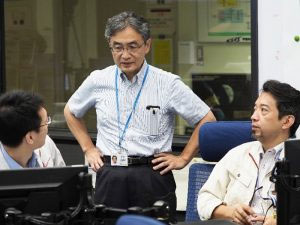
"Obtaining pure scientific knowledge is not the only purpose of Hayabusa2’s exploration," adds Yoshikawa, who is also a leader in the field of "planetary defense," a research area that prepares for celestial collisions with the Earth. It is widely known that dinosaurs were extinct after an impact caused by celestial bodies with the Earth 66 million years ago, but the risk of celestial bodies hitting the Earth continues. In 2013, a meteorite with a diameter of about 17 meters fell in Chelyabinsk Oblast, Russia, causing many injuries and damage to a wide range of buildings and glass structures.
Among the celestial bodies approaching Earth, those with a diameter of about 1 km or more have been discovered, but if they measure less than that─about 20 meters or more─they are likely to cause great damage. If we find a big object that can hit Earth, “With today's technology, we can only think of hitting the object with something like a spacecraft early on to shift its orbit. It is important to investigate the constitution of Ryugu when considering ways to prevent such threatening objects from damaging Earth,” says Yoshikawa.
After delivering its capsule to Earth, Hayabusa2 is using its remaining fuel to head out on its next journey. It will travel across another asteroid, "2001CC21," in 2026, and will arrive at "1998KY26" in 2031 for probing. This time it will not return to Earth. The diameter of 1998KY26 is about 30 meters, and according to Yoshikawa, a celestial body of this size could collide with the Earth once every 100 to 200 years. From the perspective of planetary defense, this exploration is also drawing wide interest.
Because the Team Faced a Tough Opponent
So, what did Hayabusa2 teach us? A famous saying in the military art book of Sun Tzu of ancient China tells us "If you know your opponent and you know yourself, you will not lose even after fighting a hundred battles."
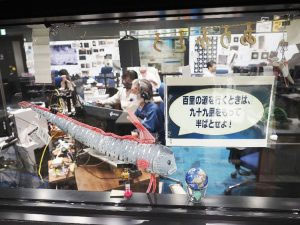
Tsuda recalled, "The more I studied our opponent Ryugu, the more I realized that our existing knowledge wouldn’t cut it. Because we faced a tough opponent, we had to determine our strengths, asking ourselves if we could be more capable. There is also the limit to how much you can do. We conducted the Hayabusa2 mission by literally following Sun Tzu’s saying word for word.
The team members told themselves "don’t let anyone make a movie out of this mission." However, looking back, the first-generation and Hayabusa2 can interconnect into one long story. By illustrating team Hayabusa2’s struggle and success, and its safe return back home, a whole new movie could materialize.
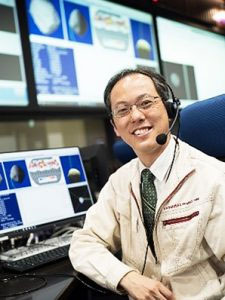
Tsuda Yuichi
Professor, Institute of Space and Astronautical Science (ISAS) at Japan Aerospace Exploration Agency (JAXA); Hayabusa2 Project Manager
Completed the doctoral program at the Department of Aerospace Engineering, Graduate School of Engineering, the University of Tokyo in 2003. After working as an Associate Professor at JAXA, a visiting researcher at the University of Michigan and the University of Colorado Boulder, and an Associate Professor at JAXA, he became a Professor in 2020.
Research themes include space engineering, space navigation mechanics, and solar system exploration.
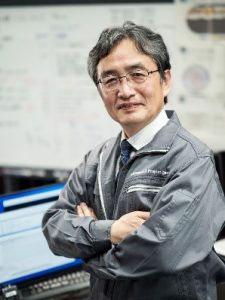
Yoshikawa Makoto
Associate Professor, Institute of Space and Astronautical Science (ISAS) at Japan Aerospace Exploration Agency (JAXA); Hayabusa2 Mission Manager
Completed the doctoral program at the Department of Astronomy, Graduate School of Science, University of Tokyo in 1989. After working as a research fellow at the Japan Society for the Promotion of Science (JSPS), a senior researcher at the telecommunications research institute attached to the Ministry of Posts and Telecommunications, and as an Associate Professor at the Ministry of Education’s institute of space and astronautical science, he became an Assistant Professor (equivalent to the current associate professorship) at JAXA's Institute of Space and Astronautical Science (ISAS) in 2003.
Research themes include celestial mechanics, planetary exploration, and planetary defense.
Original article from JST’s Science Portal website
Translated by SSC Secretariat







